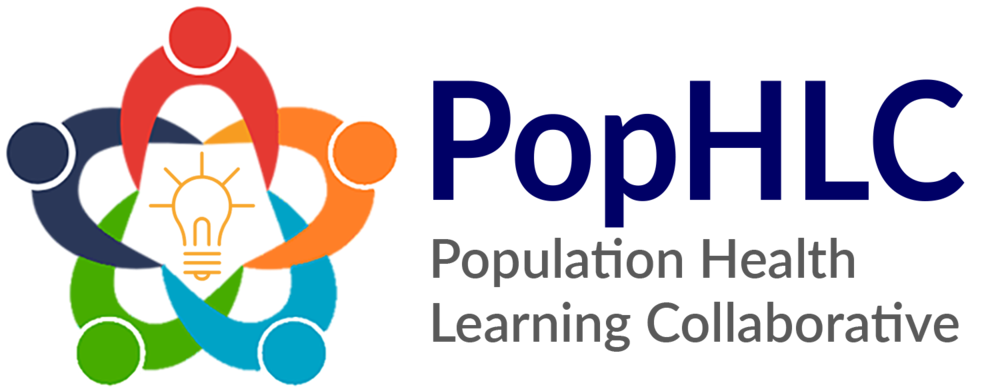Accelerating Successful ACEs Prevention & Resilience Efforts in 2022
October 26, 2021 | Now On-Demand
While there is widespread (or at least growing) awareness of the importance of minimizing and addressing Adverse Childhood Experiences (ACEs), most communities struggle with how to develop and implement strategies to:
reduce ACEs,
increase the use of Trauma-Informed Practices, and
strengthen community resilience.
It feels overwhelming to wrestle with these wicked problems. Many coalitions that have been in existence for years are struggling with what they should do to become more effective.
It can be frustrating to see several years pass by, coalition members change, and enthusiasm come and go, and yet feel that there has been little progress or building of momentum for the important changes that get talked about. It's also disheartening for each coalition to feel like they need to re-invent and re-create the proverbial wheels that are needed to make real progress. It is hard for even the best-hearted community members to not become cynical when silos, fragmentation, and dysfunctional competition seems to undermine the strategic plans (which sit quietly on the shelf collecting dust).
It doesn't need to be this way!
The ACEs & Resilience Resource Commons for Communities (ARRCC) and the ARRCC Action Network are designed to accelerate and enhance the progress that community coalitions can make on these important topics.
The ARRCC is a valuable resource-sharing hub, built on the same technology platform as Wikipedia® that is structured by a robust strategy map.
The ARRCC Action Network is the annual program that helps ACEs-related coalitions to both build-out and leverage the ARRCC to create their own local strategy based on the shared template and resources. It includes training, group coaching, and personalized consulting by Bill Barberg.
This 60-minute webinar will help you accelerate and enhance your community’s response to the crisis of ACEs.
This webinar shares the stories of three groups that have been participating in the 2021 cohort of the ARRCC Action Network. Participants in the webinar will learn how this current program is helping these coalitions dramatically improve their effectiveness in building out and implementing parts of a larger ACEs & Resilience strategy. These mini case studies include:
A statewide network of regional coalitions in New Hampshire that are collaborating to enhance early childhood development, health, and education.
A Canadian coalition working to reduce childhood trauma caused by domestic violence.
A coalition in Pennsylvania that is working to reduce child abuse.
Each of these coalitions is benefitting from the training provided through their participation in the ARRCC Action Network, and they are creating resources that can be shared with any other communities working on similar topics. The webinar shares parts of their journey and shows examples of the techniques they are learning for creating more powerful and “implementable” strategies.
Previous webinars featured examples from two other case studies from participants in the 2020 ARRCC Action Network, as shown in these short video clips.
Participants will learn about the 2022 cohort for the ARRCC Action Network that will starting March of 2022. By learning about this opportunity now, you can plan to include participation by your coalition in the coming year.
Speakers
Nicole Letourneau PhD RN FCAHS FAAN is Principal Investigator of the Child Health Intervention and Longitudinal Development (CHILD) Studies Program (www.CHILDStudies.ca) and the APrON (https://apronstudy.ca/) longitudinal pregnancy cohort of 2200 families funded for follow-up to 12 years of child age. She is Director of Research and Education for Solutions to Violence (RESOLVE) Alberta. Her research focuses on understanding predictors of and intersections between parental mental health, adversity and children’s health/development. She has attained ~$65 million CDN in research funding, and authored three books including Scientific Parenting (2013), What Kind of Parent Am I? (2018), and Parenting and Child Development (2020) as well as 190+ peer reviewed papers. Follow her on Twitter @DrNLetourneau.
Lubna Anis is a foreign-trained doctor, a PhD, and a post-doctoral fellow at the University of Calgary. Her background is in clinical medicine and project management, but she is also well-trained in administering various standardized measures to assess parent-child relationships, and child health and development. She has been involved in various research projects focusing on maternal and child health at the Agha Khan University Hospital Karachi Pakistan, Alberta Children’s Hospital Research Institute, and the University of Calgary. Her research interests include parent-child relationships, immune health, and child health and development. Dr. Anis shows tremendous interest in gaining an understanding of measure development, immune health, and implementation science for her post-doctoral project. She plans to identify a convenient measure of attachment and immune health that can be used in community practice. These interests are underpinned by an interest in learning more about implementation science and its methods, which have tremendous potential to restore the bridge between research findings and clinical practice.
Mike Ritter currently serves as Deputy Director of Domestic Violence Intervention (DVI) of Lebanon County. He previously served DVI for ten years as public education coordinator, leading the agency’s community education and prevention initiatives. Most notably, Mike chairs Connected Together, a collaborative task force under the Community Health Council of Lebanon County dedicated to preventing trauma and community violence by building healthy relationships and families. And because domestic violence and homelessness often intersect, Mike has served as co-chair of the Lebanon County Coalition to End Homelessness for the past five years.
Mike holds a Masters in Public Administration degree from Ohio University’s Voinovich School of Leadership and Public Affairs and two Bachelor’s degrees in psychology and sociology from Penn State. He holds current certification from Lakeside Global Institute as a trauma-competent professional.
Mollie White, Management Consultant and Executive Manager for Coös Coalition for Young Children and Families.
Sarah Fox serves as the Program Manager for the NH Alliance of Regional Early Childhood Coalitions. She has worked at both community and state levels in New Hampshire including the Department of Education, the Circuit Court, Division for Children,Youth and Families as well as her local school district. She's been a teacher, a foster parent, a CASA volunteer, and she currently serves on the Board for the NH Children's Trust. She is passionate about helping improve the child and family serving systems so that all children and families thrive.
Bill Barberg, a co-founder of the Population Health Learning Collaborative, is the President and Founder of InsightFormation, Inc., a Minnesota-based consulting and technology company that helps communities, regions, and states address complex social and health issues that require multi-stakeholder collaboration. His deep background in strategy implementation has been featured in dozens of conference presentations and webinars, and he both organized and hosted the recent virtual summit on Innovations in Naturally Affordable Housing. He has been a pioneer in many projects that have pushed forward the practices for achieving Collective Impact on a wide range of issues—from addressing the opioid crisis to transforming housing re-developments into Communities of Hope in Detroit.
Bill was selected to write the chapter on “Implementing Population Health Strategies” for the book, “Solving Population Health Problems through Collaboration” (Routledge, 2017). His recommendations for using strategy maps is featured as a core recommendation in the new report by the National Academy of Public Administration. Bill recently co-authored a paper for the Journal of Change Management on “Leading Social Transformations to Create Public Value and Advance the Common Good”.






















































